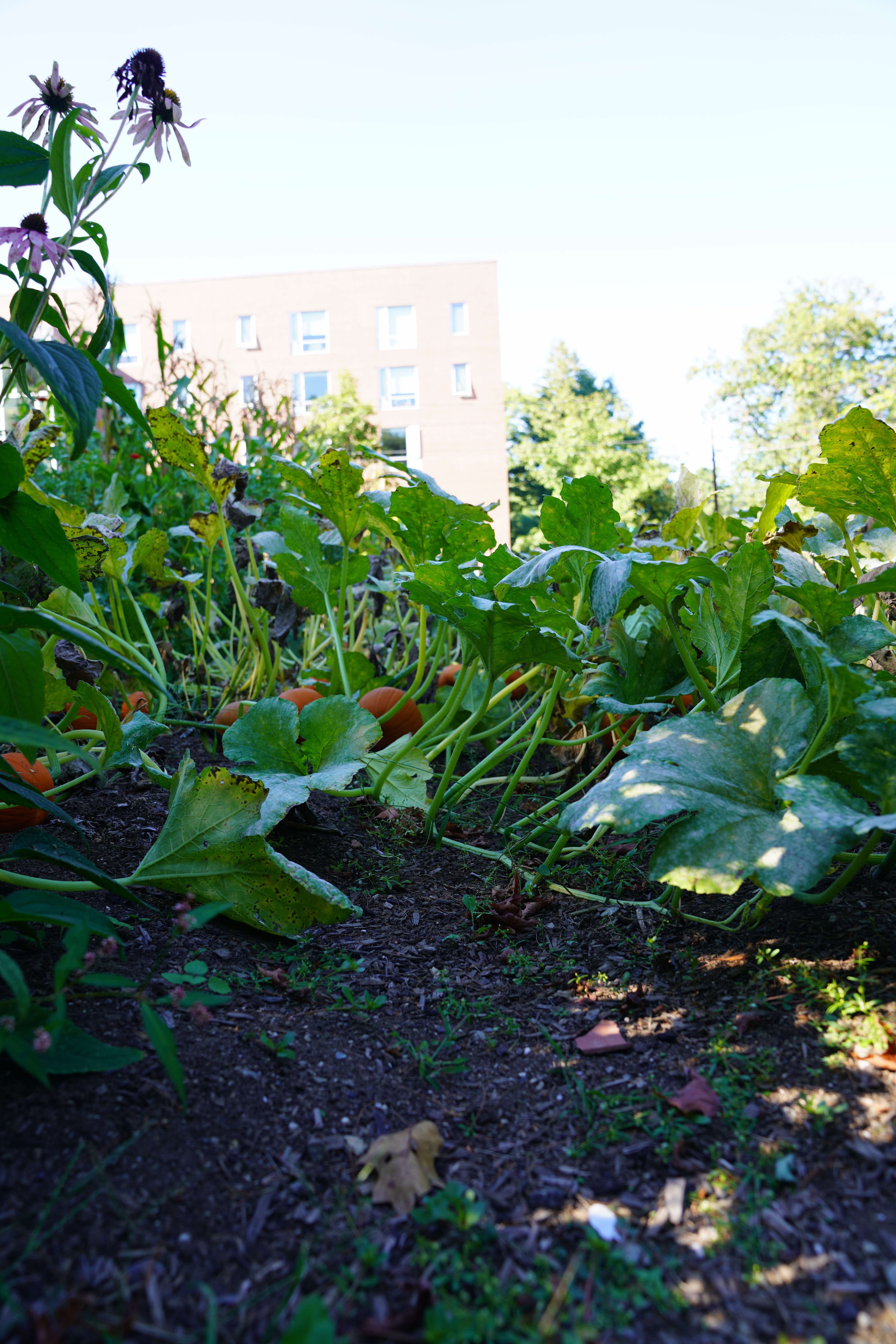Organic Garden workshop series introduces new approaches to integrative health
October 21, 2022
 Eliza Rhee
Eliza RheeUpon entering the barn behind 52 Harpswell, warmth radiates from a small gas stove on the ground, complemented by the nostalgic scent of Thanksgiving cranberry sauce. This scent is the fragrance of elderberry permeating the crisp fall air.
On Tuesday, the Bowdoin Organic Garden (BOG) hosted its first workshop in its new “Herbal Immune Support Workshop” series. Students explored the medicinal properties of plants grown on campus and discovered new approaches to integrative health. Organic Garden Supervisor Lisa Beneman and Organic Garden Assistant Stephanie Broido are the masterminds behind the series. Having both joined the BOG staff in fall 2021, Beneman and Broido are excited to use the plants they’ve grown in the past year for a series they’ve been organizing since the spring.
“Since this is our first official fall after growing for the season, we’re hosting workshops now that students are back on campus,” Broido said. “We are just seeing what people are interested in and trying out different things. I think that will inform [workshops in the] years ahead based on what students are really excited about [now].”
Hayden Keene ’22, a leader of the BOG, explained the inspiration behind the Immune Support Series and the growing interest in herbal medicine that she’s observed on campus over the past few years.
“Last year, the BOG sponsored two field trips to medicinal herb farms in Maine, and I think those events inspired students to begin learning more about plant medicine,” Keene said. “This year, with the new medicinal garden, the BOG is now able to dry and store plants for medicine making events throughout the year, which is very exciting!”
Keene noted that the workshops aim to address some of the important student health issues on campus and challenge traditional approaches to both mental and physical health.
“This herbal workshop series is centered around some of the biggest needs of the community that herbs can help support—immunity and stress—and they provide a really accessible introduction to working with common herbs in easy ways,” Keene said.
Tuesday’s workshop taught students how to make elderberry syrup and echinacea tincture using locally-sourced elderberries and echinacea roots pulled directly from the garden by participants. As the height of cold and flu season approaches, Broido believes that these medicines are perfect for students to incorporate into their diets.
“Elderberry and echinacea were two readily-available herbs that are really well known and also really medicinally potent,” Broido said. “They are really accessible and don’t have a lot of [health] contradictions. They’re also delicious, so it’s just really fun when your medicine tastes good!”
In addition to making herbal medicine, students also establish meaningful connections and memories associated with the garden and its plants. Broido described the magic of “kitchen medicine,” referring to the potency and long-lasting benefits of homemade herbal medicine.
“Coming back into your kitchen and using the plants and herbs available to you to make something that is really medicinally potent will likely serve you in the long run,” Broido said. “Now every time that I take [the medicine], I have that special memory, which just makes me smile. Having a special association with something that you’re consuming makes you feel better.”
Broido believes that knowing where one’s medicine comes unifies emotional and immune health. Keene’s hope for the rest of the series is to help participants foster a personal connection between the medicine we take and the experiences we have in the garden.
“Medicine making is such a tactile experience, so having the garden as a space where students can work hands-on with plants is really key. I hope these workshops help show students how simple working with herbs can be and sparks their curiosity to learn more about plant medicine,” Keene said.
Toward the end of the workshop, students explored the BOG’s herb room, which is lined with stacks of aromatic, medicinally-powerful plants. These herbs will be featured in the BOG’s second chapter of the series: a tea blending workshop highlighting the medicinal plants introduced to the garden this year. This workshop will teach participants about the plants’ general properties and allow them to make their own blends.
The “Herbal Immune Support Workshop” series is just one of many ways the BOG is utilizing the diverse array of plants grown at Bowdoin.
“If you’re looking for something to jazz up your dorm room or a gift for somebody special … Lisa is having a wreath-making workshop next week with flowers that we grew in the garden,” Broido said after pointing out a finished example wreath.
Through this program, the BOG continues to expand the campus community’s understanding of health and teaches how to incorporate the unexpected power of plants and gardening day-to-day.

Comments
Before submitting a comment, please review our comment policy. Some key points from the policy: